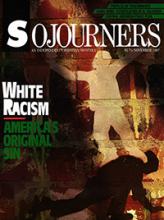The reports of what was happening to the Ray family of Arcadia, Florida, quickly circulated around the country. Three brothers, all hemophiliacs who had been infected with the AIDS virus from clotting agents given to control their disease, were greeted by a blockade of community resistance when they tried to return to school.
Rallies were held to protest against the three boys' attempt to attend school. Almost half the students boycotted the first day of classes. The school and the family received bomb threats and other threatening phone calls. And finally, the Ray house was gutted by a suspicious fire. The family lost everything--not only their home but even a place to call home.
"This is no longer our home," said the boys' mother, Louise Ray, who had, along with her husband, fought hard to keep her kids in school. Now their voices seemed to admit defeat. They said they hoped to find a new home, someplace where people might accept them. Ricky Ray, who is 10 years old, now lies awake at night crying, blaming himself for the fire that destroyed the family's home, his father reported to a Senate committee in September. "He believes if he hadn't tested positive, the home wouldn't have burned," said Clifford Ray. Ricky, along with his brothers, Robert, 9, and Randy, 8, really wanted to stay in school. They believed that some of the kids were starting to accept them and were feeling better about things before the fire.
Read the Full Article

